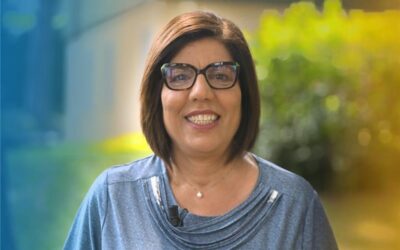The story of Marco Bertolini, a social and health educator in the province of Rome. “Even teachers have something to learn from students. It is possible to convert difficulties into opportunities.” Diagnosed when he was still young, polio did not turn out to be Marco Bertolini’s prison from which to scream out his anger at the world. Instead it became an opportunity to reflect on the richness of life and the potential within his “condition” to help many “problem” children discover their beauty and human dignity. Meeting young people from the Focolare came at a decisive moment for him. Today Marco, 59, husband and father of two, works as a social and health educator in a small hamlet in a suburb of Rome. We met with him at the recent EduxEdu education conference at the Mariapolis Center in Castelgandolfo (Italy). Marco, your story is about a difficulty transformed into an opportunity. What brought on this development? Ever since a child, I was all too aware of how different I was physically. While my sisters and friends lived at home with their families, I boarded at school. This made me angry at those who I felt were luckier than I was. I sought out conflict and tested my parents to see if they truly loved me. Then there was a turning point when I was 20. I was searching for some meaning to give to my life when I met young people from Focolare who lived the Gospel, were united and respected each other. In my small hamlet in the suburbs of Rome I had been up to all sorts of things and did not have a good reputation, yet they accepted me as I was. This made me feel like a person, and they did not look at my defects. They explained to me that they tried to love their neighbour, like the Gospel says. I was sceptical at first, thinking that the Gospel may be a good thing, but in life you need to fight for what you want. And yet, little by little, they showed me that living the Gospel is possible and can change your life. How did you become a teacher? At first I studied theology. I discovered a relationship with God and wondered whether I was called to be a priest. I entered the seminary and got involved in a number of services they offered. In Rome I collaborated with Caritas, and at the centre I mostly took care of the homeless. There I understood that my path in life was social work. I felt particularly strongly about the kids. I wanted to share with them the gift that I had received with I met the Focolare young people, so that they too could discover the deep value of life. I left the seminary and started my studies in social work and education. The approach to “problem children” seems to always be to “contain” them. Yet it’s challenging to understand the hurt that they carry – how do you take it on? Children should not be contained but listened to and understood. The approach I use is the same that God did with me: he accepted me just as I was. And so before anything else, I take them in as they are, with their language, without wanting to change anything about them, but understanding that it’s an opportunity to care for them. I begin from my experience with God and from what they’re feeling. The kids can be helped when they buy in to an idea to live differently. It’s a bit like establishing an “educative pact” with them. Can you tell us a related experience of yours? For years I’ve been part of a team that organises a working camp called “Stop’n’Go”, where teens are given an opportunity to train in the spirituality of unity. I remember a teen mother aged 19 who had a painful story. Her attitude alternated between that of an adult and a child. We asked ourselves if her presence there would be productive for her and the others. We decided to make a deal with her: she could take a turn going out with one of us adults if she respected the rules of the camp and participated in the activities. She accepted, and there was some competition among the team as to who could make her feel most welcome and not judged. I experienced how even teachers have something to learn from students. It is possible to convert difficulties into opportunities.
Claudia Di Lorenzi




0 Comments